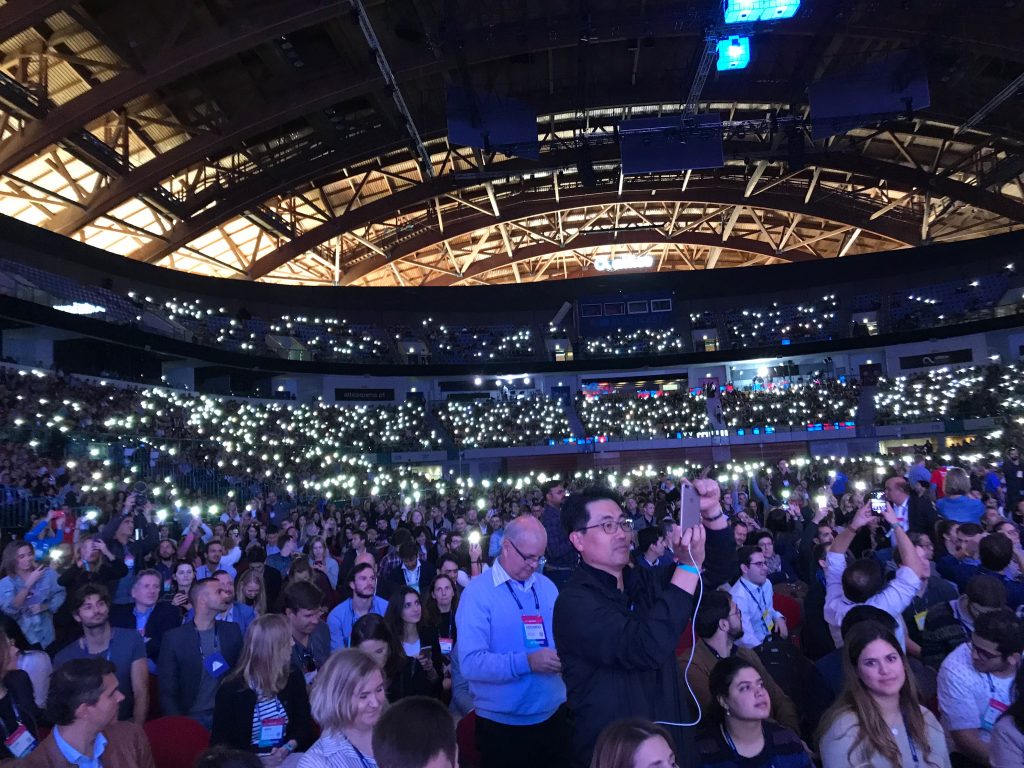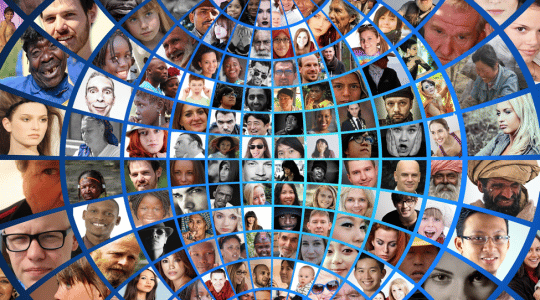
Attendees at Web Summit in Lisbon, Portugal
Doing business in Europe is different. And it’s not just thanks to varying data protection laws. Rather, it’s the entire expectation of what a company is and what a company does. And, how it fits into broader society.
Many American companies don’t really grok this.
The result, when they enter Europe, is years of struggle, challenges to fit in, and ultimately in some cases, massive fines. Uber learned that lesson, and its new CEO is now building bridges to address the resulting challenges. The huge iconic tech companies of our day are just a few of the American companies that the EU has fined, often in the billions of dollars.
Yesterday Margaret Vestager, the European commissioner for competition, shared why this keeps happening on center stage at Web Summit, the 60,000-attendee tech conference in Lisbon, Portugal.
“We’re different,” Vestager told Recode journalist Kara Swisher on-stage. “We’ve built a single market of 500 million consumers, but it’s a market where you care. You care about the environment, you care about people … it’s a market where it’s not the law of the jungle.”
Vestager’s use of the word jungle might reveal a European view of American companies and the relatively laissez-faire environment in which they operate, but her statement certainly reveals a European viewpoint on how a company should interface with the people and society that surround it.
And it’s something that adtech and martech companies would do well to pay attention to.
With GDPR, the continent’s General Data Protection Regulation, Vestager and her colleagues will have increased power to discipline and fine corporations that violate European rules around the use of its citizens’ personal data … with fines up to 4% of a company’s global annual global revenue or $20 million Euros, whichever is greater.
Understanding the differences and taking them into account when growing businesses in Europe will help American companies adapt to what will be successful across the Atlantic.
And that extends to more than what people do.
“Some of the algorithms, they have to go to law school before getting out in the real world,” Vestager said, referring to AI and machine learning routines that use private data to impact how companies advertise, who they market to, and how they support customers. “You have to teach your algorithm what it can do and what it can’t do.”
In other words: no black boxes. GDPR requires that you be able to explain why and for which reasons a person was offered or not offered an ad, or treated in different ways by software.
In an era in which AI seems vulnerable to adopting some of our worst prejudices, that seems reasonable. It’s probably also not easy — in many cases it’s unclear exactly how smart systems arrive at their conclusions.
And yet, it must be done.
“We have to take our democracy back, Vestager says. “We cannot leave it to Facebook … society is about people, it’s not about technology.”
Adtech and martech companies looking to avoid fines would do well to pay attention to the spirit of the new data protection laws. But all companies looking to enter Europe and grow business there would also do well to pay attention to the spirit of the law.
The interesting thing is that even if regulation in the U.S. is different that the European Union, there’s a growing movement there (and globally) towards companies that do well by doing good — ethical companies.
And that’s something that can work well on both sides of the Atlantic.
Author
Before acting as a mobile economist for TUNE, John built the VB Insight research team at VentureBeat and managed teams creating software for partners like Intel and Disney. In addition, he led technical teams, built social sites and mobile apps, and consulted on mobile, social, and IoT. In 2014, he was named to Folio's top 100 of the media industry's "most innovative entrepreneurs and market shaker-uppers." John lives in British Columbia, Canada with his family, where he coaches baseball and hockey, though not at the same time.



Leave a Reply
You must be logged in to post a comment.